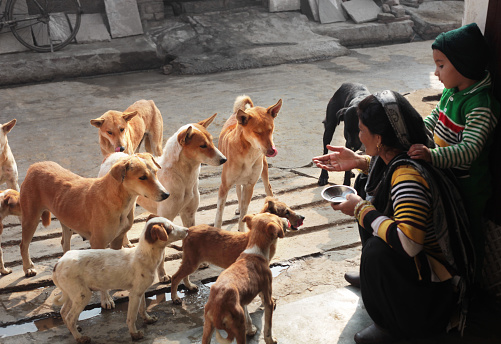
Figure 1. A typical site (field clinic setup) for the dog sterilisation programme in Bhutan (source: Department of Livestock)
29 Dec 2023 (Bhutan) – The Kingdom of Bhutan became the first country to sterilise its entire free-roaming dog population in a nationwide operation, the “Nationwide Accelerated Dog Population Management and Rabies Control Programme” (NADPM & RCP), as commanded by His Majesty the King of Bhutan, the Kingdom’s Head of State.
His Majesty acknowledged the government’s dog population management efforts over several decades, but noted limited achievements nationwide, hence the persistent growth of the free-roaming dog population.
A royal audience was granted on July 30, 2021, instructing the government’s Department of Livestock to devise and implement “a professional, humane, and compassionate sterilization of the entire free-roaming dog population in a ‘whole-of-nation’ approach”. As commanded, the programme was implemented with a clear and time-bound goals, increased budgetary support, robust stakeholder and community engagement, strong policy backing, a focus on “whole-of-nation” approach and well-defined exit strategies. Following were the programme’s objectives:
The programme was implemented following the CSVWR protocol: catch, sterilize, vaccinate, withhold (post-surgical care for 24 hours) and release.
Department of Livestock, Bhutan
Figure 2. Dogs being caught humanely using nets and being brought to the clinics for sterilisation (source: The Bhutanese)
The then-Prime Minister of Bhutan, officials of the Royal Secretariat and the Department of Livestock, along with those of the De-suung (Guardians of Peace) Organisation, launched the NADPM & RCP in March 2022. With full support and collaboration from policy makers, government organisations, private agencies, local government and communities, the Department of Livestock in joint partnership with De-suung completed the programme in October 2023, a record time of less than two years, at a cost of Bhutanese Ngultrum 295 million (USD 3.55 million).
The programme was conducted in three phases involving 12,812 personnel including veterinarians, veterinary para-professionals, and volunteers (including 9,036 De-suups or Guardians of Peace). The three phases included a nationwide sterilisation campaign (mass sterilisation); a mopping campaign (performed in smaller groups), and a combing campaign (final search and sterilisation of elusive dogs). Operating from 217 clinics across the country, the programme covered even the remotest border districts. For dog capture, various humane methods such as hand-catching, netting, trapping, sedating and finally darting were used depending on the ground situation.
Figure 3. Image showing the inside view of a field clinic for sterilisation of dogs (source: Department of Livestock)
A total of 61,680 dogs were sterilised, of which 56,251 (91%) were free-roaming dogs and the rest were pets. During the campaign 58,581 (95%) dogs were vaccinated against rabies and 32,544 pet dogs were microchipped and registered. During the programme, dogs were also treated for skin diseases, wounds, worm load and conditions related to reproductive systems such as mammary tumors, pyometra, transmissible venereal tumors, etc. According to the Department of Livestock, the numbers were independently validated by a third-party instituted specifically to evaluate and validate the programme’s achievements. The current estimated dog population in the country is 106,201 dogs. Dogs that were already sterilised as identified by their notched ears were not included in the current campaign.
In 2009-2018, a group of Bhutanese veterinarians and veterinary paraprofessionals were trained under a project led by Humane Society International, a US-based NGO, in collaboration with the Department of Livestock. This group and the training proved useful for the humane capture and sterilisation methods adopted for this campaign.
Bhutan’s Livestock Rules and Regulations (2022) were amended to complement successful implementation of the dog population management programme. An agreement has been signed between the Department of Livestock and Local Governments (20 Districts and four Municipalities) to sustain these achievements with commitment, collaboration, and dedication from now onwards. To conserve the native dog population (and prevent extinction), a gene pool is maintained in the form of a conservation center.
This historic achievement takes Bhutan closer to its vision of a nation free from a consistent threat of rabies, dog bites, and other forms of public-animal conflicts. With the completion of the programme, the number of animal rabies outbreaks has drastically decreased, and containment has become easier with most dogs having been immunized. With this milestone achieved, Bhutan moves closer towards the global goal to eliminate dog-mediated human rabies by 2030.
For further information, readers may visit the following websites.
National Centre for Animal Health (Bhutan)
Department of Livestock – Ministry of Agriculture & Livestock (Bhutan)





